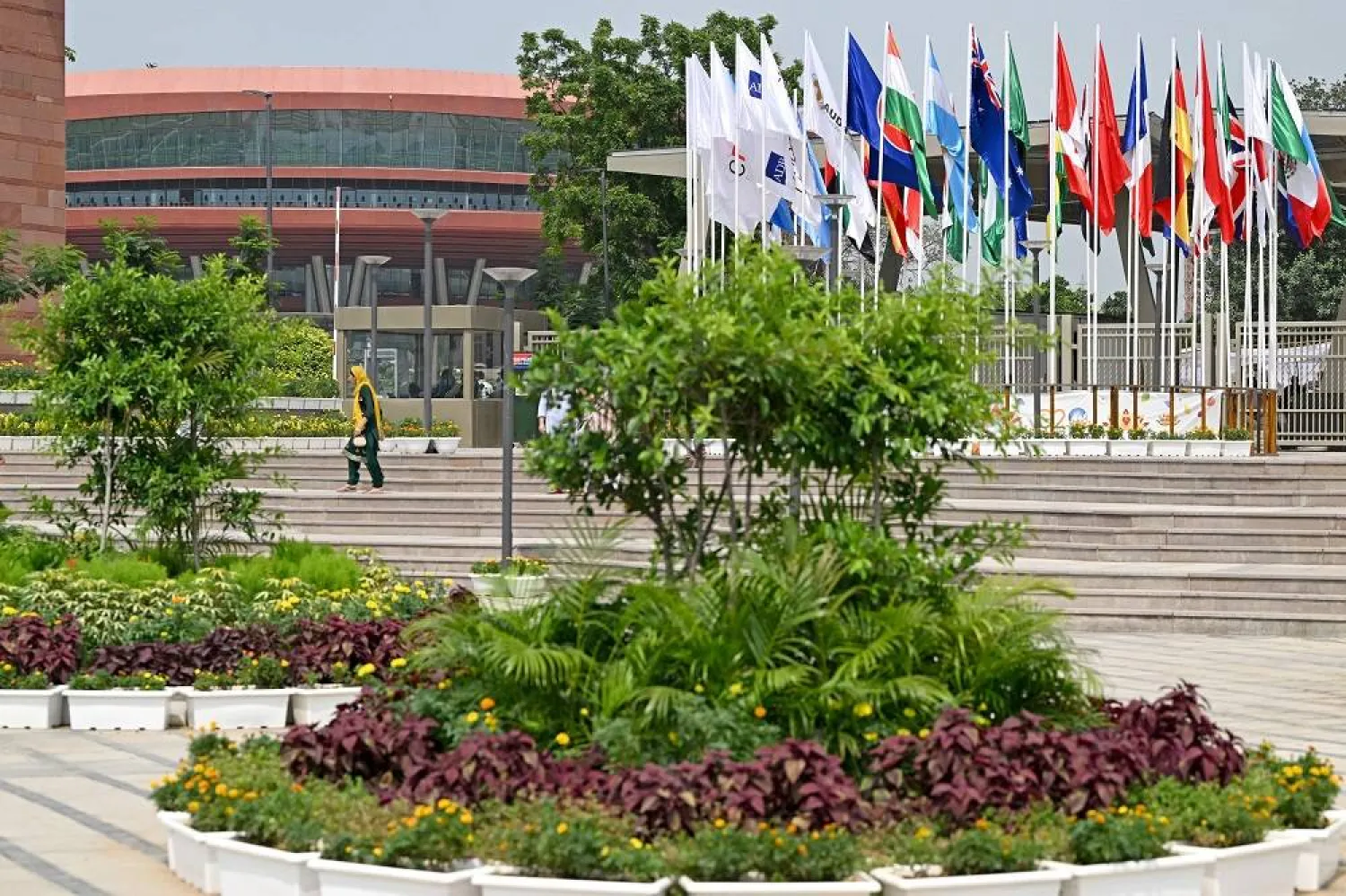When the leaders of the Group of 20 arrived in host country India, they were feted by a classic Indian formula of Bollywood song and dance on the tarmac. Now as they tuck into dinner, they are in for yet another cultural treat: dressed-up versions of a humble, earthy grain that's a staple for millions of Indians.
Millets are a group of grains India has been championing as a super food — versatile, climate-friendly and, if prepared right, presumably delicious enough for world leaders. And after a grueling day of discussions at the summit that saw the African Union added as a new G20 member, delicacies made from it will be rolled out in various forms.
The world leaders will gather for the meal at the Bharat Mandapam building, a sprawling exhibition center in the heart of New Delhi, which twinkled with blinking lights on Saturday night.
Among the vegetarian delicacies are oxtail millet leaf crisps topped with yoghurt and spiced chutney, Kerala red rice tossed with millet crisp and curry leaf, and a cardamom scented barnyard millet pudding with fig and peach compote, according to the menu seen by the Associated Press.
Prime Minister Narendra Modi declared 2023 as the Year of Millets, and so did the United Nations. Even the White House took note of the grain — in June, plant-based courses of millet were on the menu for some 400 guests invited to a White House state dinner for Modi, who is a vegetarian.
The focus on millets is seen as an effort to revive a hardy and healthy crop that has been cultivated for millennia but was largely cast aside by European colonists who favored corn, wheat and other grains.
Rich in proteins, potassium and vitamin B, and gluten-free, the grain's fans tout its flexibility — you can knead it into rotis or flatbreads, make a batter out of it for dosas or savory crepes, or just boil it, like you would rice, and serve it with spiced lentils, or dal.
Over centuries, millets have been cultivated around the world — including in Japan, Europe, the Americas and Australia — but their epicenter has traditionally been India, China and sub-Saharan Africa.
In total, there are about nine types of millet, and India — the largest producer — grows all of them. The South Asian country accounts for 80% of millet production in Asia and 20% globally, according to a report from the ORF.
Millets are more tolerant of poor soils, drought and harsh growing conditions, and can easily adapt to different environments without high levels of fertilizer and pesticide. They also don’t need as much water as other grains, making them a sustainable option especially in dry and arid regions.
Under Modi’s rule, the grain has found a resurgence of sorts. At the G20 meeting focused on agriculture in June, he said India's food and agriculture policy was a mix of “back to basics” and “march to the future.”
Millets, he said, exemplified this. They are not new, they've been cultivated for thousands of years, "but markets and marketing had influenced our choices so much that we forgot the value of traditionally grown food crops.”
After a thrust by the government to promote the grain, various startups across India have rolled out cafes — some even on wheels — that sell only millet-made snacks. On Instagram, chefs and Bollywood celebrities are promoting the grain by sharing recipes, with some focusing on millet's nutritional value and how it helps in weight loss.
Indian ministers are also making sure the humble grain is recognized by global guests.
Prominent among them is billionaire tech mogul and philanthropist Bill Gates, who during a visit to India this year tried his culinary skills at making millet khichdi, an Indian stew typically made with lentils and rice.









